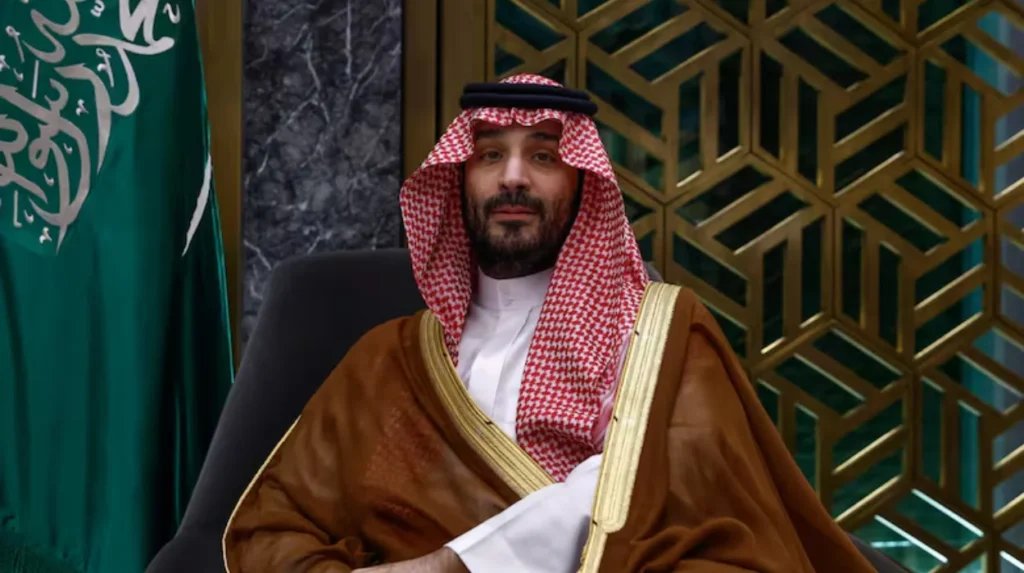The game of the people is built on the principles of unity, commemoration, and global solidarity. But through what means can the world unite in celebration beneath the flag of a nation that is condemning hundreds—mostly poor foreign nationals—to death row for non-violent offenses? This is a major reason why Saudi Arabia should not be allowed to host a prestigious event like the Fifa World Cup 2034.
A Horrifying Pattern of Executions
In its most recent report, Amnesty International uncovers a sobering fact: Saudi Arabia has put to death almost 600 individuals for drug-related crimes in the last ten years. More shocking still is that three out of four of those put to death were foreign nationals, including many from nations such as Pakistan, Yemen, Syria, Nigeria, and Egypt. They are not mere numbers—they are lives lost to a system that prioritizes punishment over justice, silence over transparency, and state power over human dignity.
While the world was momentarily cheered by a short-lived decline in executions for drug-related offenses between 2021 and 2022, Saudi Arabia got back to where it had left off with its execution binge in 2024, killing 122 individuals, and 118 during the first half of 2025 alone. These aren’t the stats of reform; they show a ruthless machine that just keeps chugging away, having little regard for global outcry or human rights obligations.
FIFA’s Silence is Complicity
FIFA’s purpose is to promote “respect for internationally recognized human rights.” Yet, by hosting the 2034 World Cup for Saudi Arabia, FIFA has turned a blind eye to mass executions, unjust trials, torture, and institutionalized injustice.
The World Cup is more than just a tournament—it’s a shining beacon of hope and shared humanity for the globe. When this tournament is being held in a country where the prisoners are denied legal counsel, tortured into confession, and scheduled to be executed on a whim, the message becomes dark and hypocritical.
The Victims: Poor, Foreign, and Exploited
Amnesty International’s investigation leaves no question: Saudi Arabia’s capital punishment system is directed against the weak. Most of those executed were poor foreign workers brought into drug smuggling on promises of low pay. In one cold case, eight men—seven of whom were Ethiopians—were convicted of smuggling $3.8 million worth of cannabis. Their promise? A meager $267 apiece.
These are not kingpins or drug lords. They are desperate men, many of whom are illiterate, with no attorney, no interpreter at trial, and no clue what they were getting themselves into legally. Some were tortured during pre-trial detention, coerced into confessing to crimes they didn’t fully appreciate.
Sportswashing Won’t Erase Human Rights Abuses
Saudi Arabia is pouring vast resources into global sport—LIV Golf and Formula 1 to now the jewel in the crown: the FIFA World Cup. No coincidence. A calculated bid for sportswashing—using high-profile events to deflect from repression at home and systemic abuse.
Let us not be misled. Whatever glamorous stadiums and modern stadiums there are, however glitzy the events may be, violations of human rights do not just vanish. Behind each broadcast goal or celebration in 2034 can lie the muffled cries of the poor and the weak who never had access to a fair trial, or a chance to live.
A Nation That Doesn’t Respect Human Life Is Not Capable of Representing the World
Dana Ahmed, a Middle East researcher with Amnesty International, puts it most simply: “We are witnessing a truly horrifying trend.” And it is not new. Saudi Arabia has long been criticized for its repressive penal system, lack of due process, and appalling record on freedom of speech, women’s rights, and minority rights.
But yet, global outrage is feeble, suffocated by the country’s geopolitical power and oil dollars. Criticism has all but disappeared as countries prioritize arms sales, trade, and diplomacy ahead of core human rights.
The Hypocrisy of FIFA’s Human Rights Commitments
Its Human Rights Policy, which FIFA signed in 2017, states that it will “go beyond respecting” human rights and “protect and promote” them. The group also committed to bringing host nations to human rights standards. Yet this policy does sound hollow when Saudi Arabia is conducting mass executions, being secretive about its judiciary, and systemically abusing migrant workers.
While FIFA has done nothing but watch while these values have been trodden under foot, putting profit ahead of people and silence ahead of action, the integrity of the World Cup and FIFA has been called into question.
We Must Act: Take the World Cup from Saudi Arabia
FIFA, governments, civil society, and football fans everywhere must unite and demand that Saudi Arabia forfeit the right to host the 2034 World Cup. It isn’t a boycott—it’s an ethical position. We must advocate for those whose voices have been silenced once and for all, too frequently being denied a level playing field upon which to voice their opinions.
- Human rights groups must pressure FIFA and its affiliates.
- Governments must exert diplomatic pressure to condemn Saudi Arabia’s atrocities.
- Footballers and federations must refuse to play in a tournament brewed in blood.
FIFA: Stand Up or Blight the Game Forever
Let this be a moment of reckoning. Let the 2034 World Cup be one that is remembered not for shiny stadiums or spectacle paid for by oil, but for a moment of historic condemnation—where the world stood up and said that sport should not be used as a shield to cover up injustice. To the football world: do not let this moment pass without a voice. Diplomacy of politeness is over. Now is the time for action.

